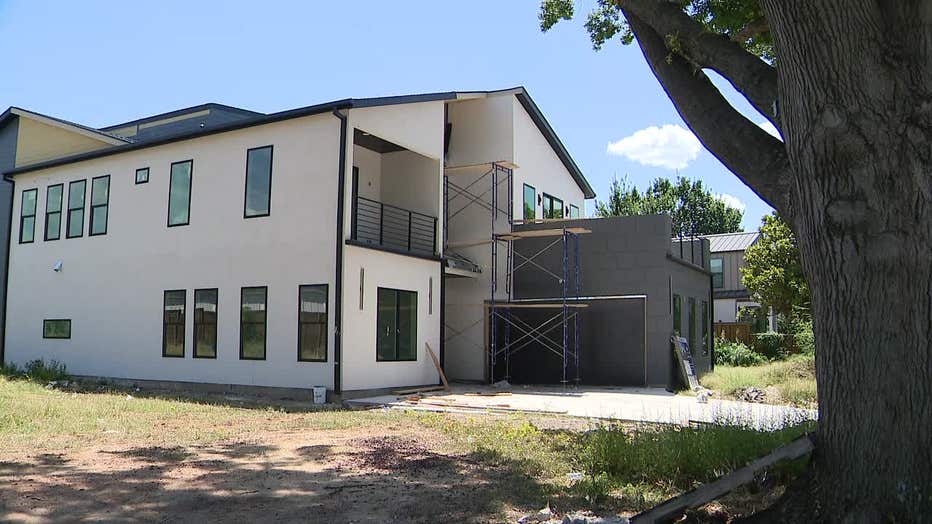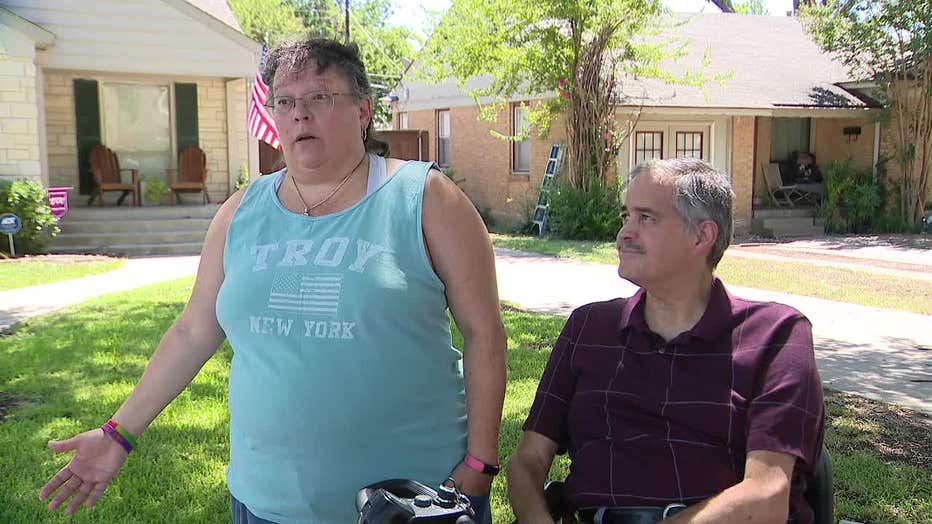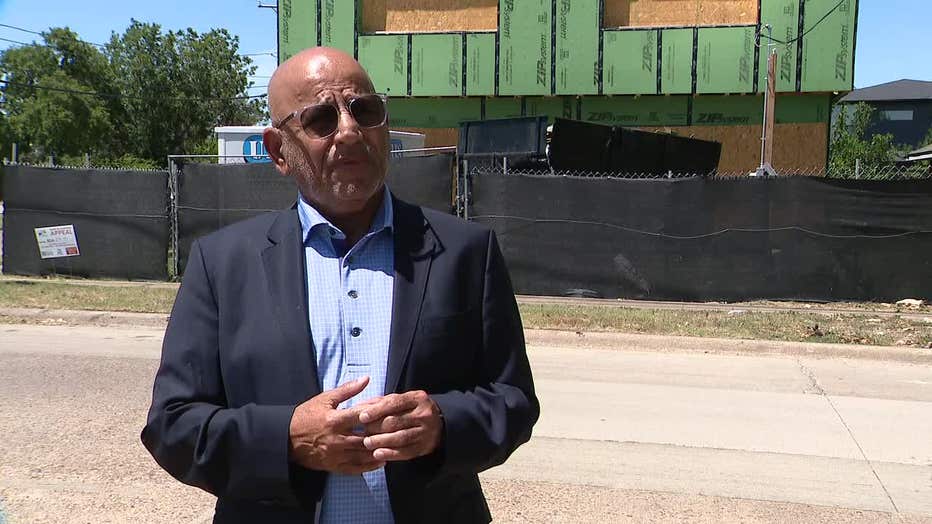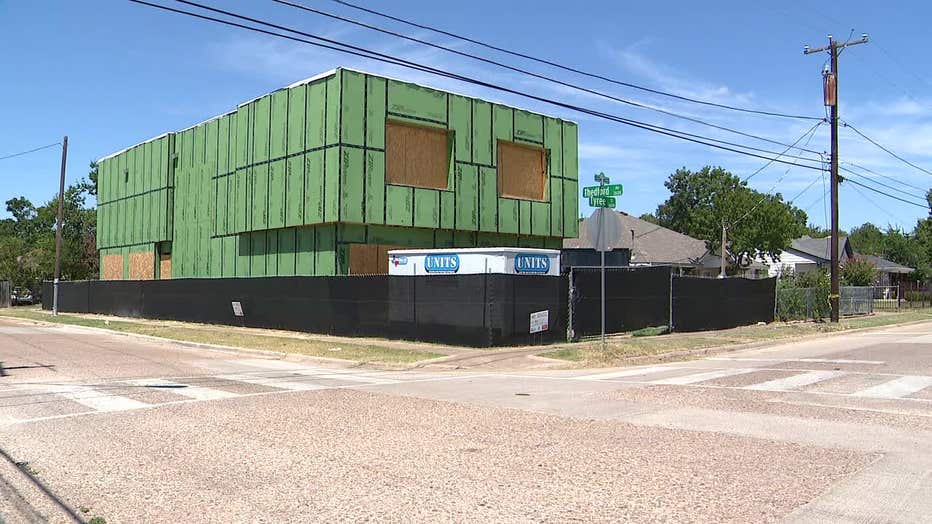Dallas City Hall mistake could cost Elm Thicket developer nearly half a million dollars

City approves permit in violation of zoning rules
The city approved 19 building permits in violation of the Elm Thicket zoning restrictions. But with the city now ordering a stop to ongoing construction, developers are facing potentially huge financial setbacks.
DALLAS - A mistake by the city of Dallas has homeowners in a historic neighborhood frustrated and developers facing potentially huge financial setbacks.
It turns out the city issued 19 building permits in violation of the Elm Thicket neighborhood's zoning restrictions.

One developer says stopping construction now would be catastrophic for business and is appealing the city’s order to stop work.
Mimi and Gus Perez have lived in Elm Thicket, also known as Ellum Thicket, for nearly 30 years.
"When the area was starting to really thrive, segregation was the rule of thumb. You had overt racism and, of course, redlining," Gus explained. "And that’s where our neighbors, the legacy neighbors, were told they had to live by the city, by the government, essentially.
Now, instead of the government forcing Black people to live in the neighborhood, some are worried new developments will be forcing Black and brown people out.

"The new homes are easily more than $1 million in price. You can still get a cottage for anywhere between $500,000 and $800,000," Mimi said. "Is that workforce housing? I don't know. But I know it’s not $1.5 million."
Concerned about the character of the former Freedmen's Town, the Perez family fought several years ago for zoning changes to protect the quality of life there.
"Your home that you've lived in your entire life, you’re not going to have a 36-foot wall next to you," Mimi said. "You can look out your kitchen window and still see sky instead of a brick wall."
On October 12, 2022, the new zoning rules took effect.
"It was a very well-publicized zoning case," Mimi said.
But neighbors continued to see homes that appeared to violate the new restrictions on duplexes, height and lot coverage.
"They were saying no violation found, and we’re pulling our hair out," Gus said. "I was on that committee saying, ‘here are the restrictions.’ I know that’s a violation of our restrictions. How can this pass?"
Eventually, city officials figured out they never updated the land use map at the city hall.
The city found that 19 building permits were issued despite the restrictions. Of those, construction had already started on 14 homes.
One of the developers caught up in this is Akber Meghani with Grand Development. He said he was aware of the zoning change.
"We were a part of that one. We knew it, and we participated, even to go to the city hall, also," he said.

A month after the new zoning took effect, Meghani applied for a duplex permit, which was approved. He said he trusted the city knew what it was doing when it approved the permit.
"The city is supposed to be their police. They are supposed to check and deny or approve," he said.
After beginning construction in January costing $500,000, Meghani received some surprising news.
"All of a sudden, we got an inspector came and put up the stop work order on the building," he said. "I thought it will be cleared up fast because we had a permit. We didn’t do anything wrong. We had a permit, and we were following those things.
Each duplex was expected to sell for between $850,000-$950,000 in December. Now, three months have gone by with construction at a standstill.
In addition to the duplex, the height and lot size coverage are also violations.
"We already have foundation, already framed, I don't know how to reduce those things. It cannot happen," Meghani said.

"It's a shame that we’re having to go through this. Again, our position is any fix, correction to the mistake that was made by the city is between the city and the builders. It should not be at the expense of our neighbors who fought really hard to get those restrictions put in place.
If Meghani is not granted an exception, he says his only choice will be to tear the construction down. His hearing before the board of adjustment is set for Tuesday.

